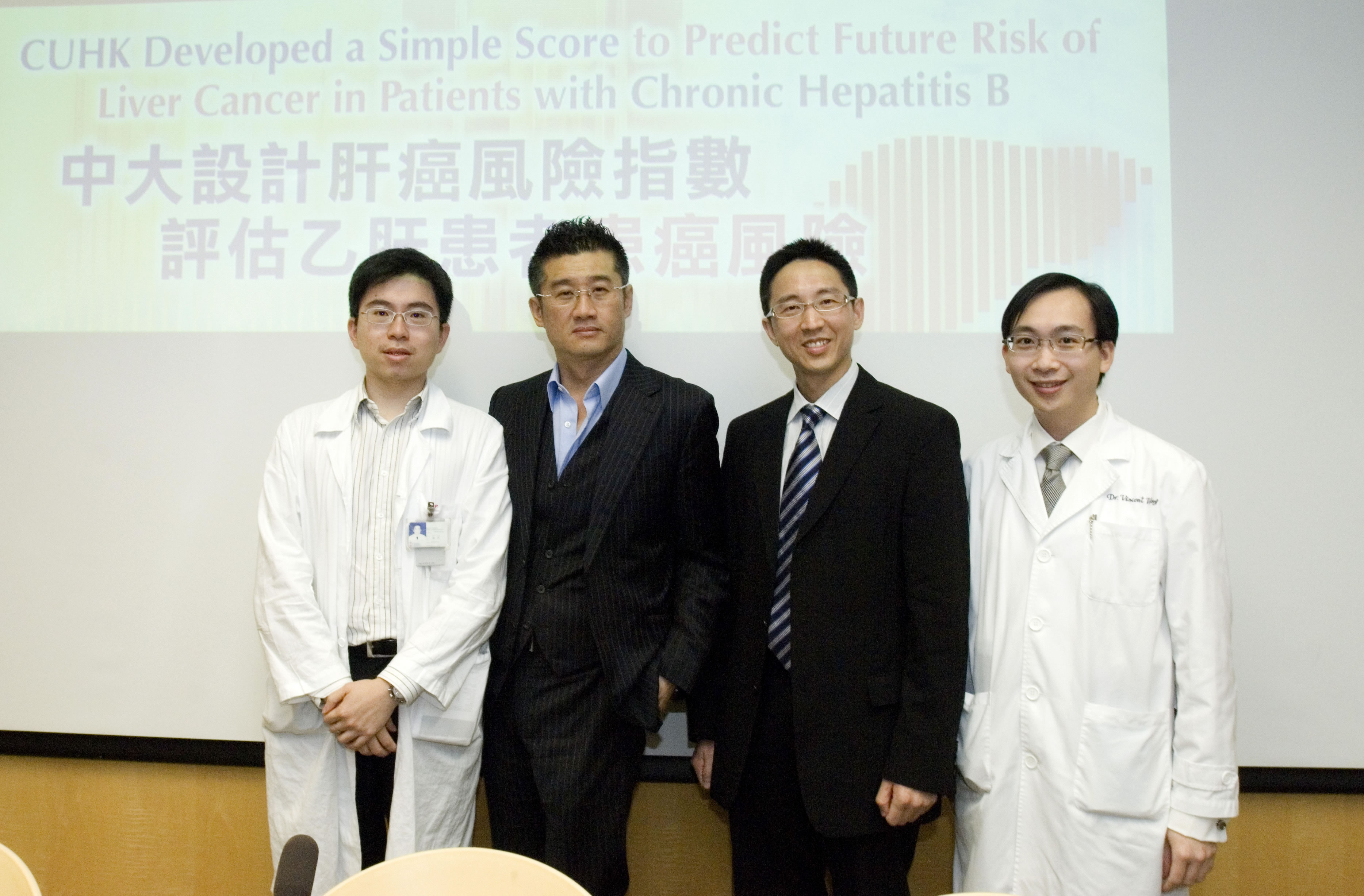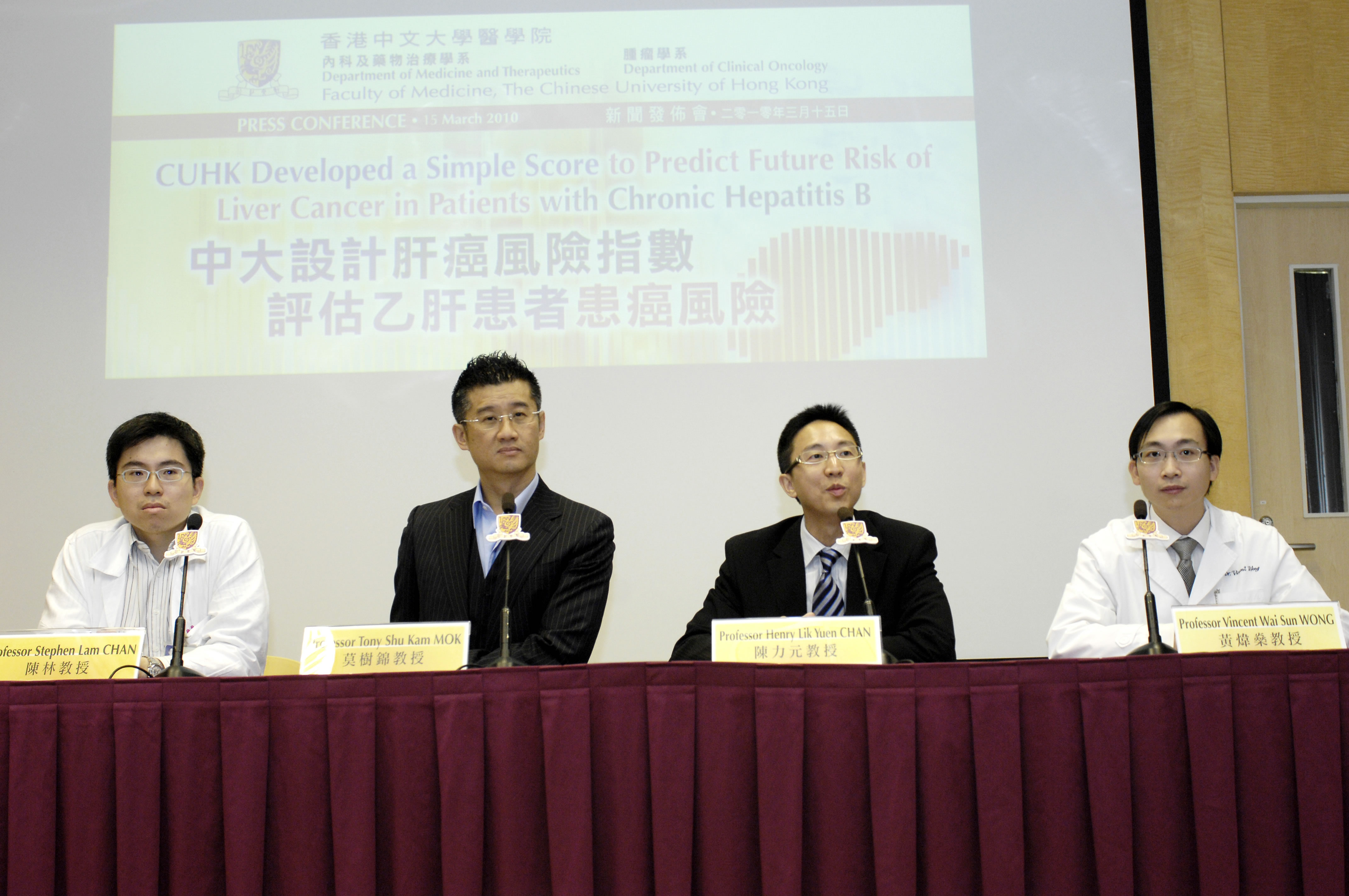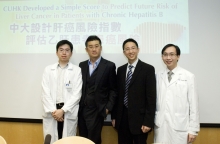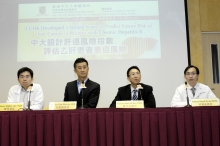CUHK
News Centre
CUHK Developed a Simple Score to Predict Future Risk of Liver Cancer in Patients with Chronic Hepatitis B
Around 500,000 people in Hong Kong suffer from chronic hepatitis B, among whom 25% eventually die of liver cancer or cirrhotic complications. Screening ultrasound and alfa-fetoprotein testing every 6 to 12 months is recommended to pick up early liver cancer. Anti-viral treatment that suppresses hepatitis B virus can reduce the risk of liver cancer. However, most patients may require long-term anti-viral treatment. The large number of patients in the community has imposed a heavy burden to the health resources on cancer screening and hepatitis treatment. A tool that can provide accurate assessment of cancer risk will be important to guide the optimal use of healthcare resources.
The Department of Clinical Oncology and Department of Medicine and Therapeutics of The Chinese University of Hong Kong (CUHK) have jointly developed and validated a simple score to predict the risk of liver cancer in patients with chronic hepatitis B by conducting a 10-year study. This new score can identify and prioritize high risk patients for regular liver cancer surveillance and anti-viral treatment.
The study began in 1997 and two cohorts were recruited. In the first cohort, risk factors of liver cancer were evaluated in 1,005 patients, among whom 105 developed liver cancer in 10 years. Age, albumin, bilirubin, hepatitis B viral load and cirrhosis status were found to be the most important factors associated with future liver cancer development. Based on these 5 factors, a simple score ranging from 0 to 44.5 points was developed. Patients with chronic hepatitis B could be divided into the low risk (<5 points), medium risk (5-19 points) and high risk (≥20 points) groups.
The accuracy of the prediction score was subsequently validated in the second cohort of 424 patients, among whom 45 developed liver cancer in 10.5 years. The risk score of each patient was calculated and the proportion of patients in each risk group who developed liver cancer was studied. 70% of the patients were classified in the low risk group and 15% each in the medium and high risk groups. Patients in the medium and high risk groups had higher risk of liver cancer. At 10 years, 29% and 32.3% of patients in the medium and high risk groups developed liver cancer, compared to only 2.9% in the low risk group. The results clearly demonstrated high liver cancer risk in patients with medium and high risk.
According to the study results, if the risk level of a patient is known, he/she may select the most appropriate treatment plan earlier. Patients in the medium and high risk groups have increased risk of liver cancer and should undergo regular cancer screening and consider anti-viral treatment. Patients with low cancer risk can be observed with monitoring of the prediction score every 1 to 2 years. In this way, resources on cancer screening and anti-viral treatment can be directed toward patients in the medium and high risk groups. Substantial cost saving can also be achieved among the 70% of the patients with low cancer risk.
(From left) Professor Stephen Lam CHAN, Assistant Professor, Department of Clinical Oncology, CUHK; Professor Tony Shu Kam MOK, Professor, Department of Clinical Oncology, CUHK; Professor Henry Lik Yuen CHAN, Director, Centre for Liver Health and Professor of Department of Medicine & Therapeutics; and Professor Vincent Wai Sun WONG, Associate Professor, Department of Medicine & Therapeutics, CUHK







